
Discover more at Little Moreton Hall
Find out when Little Moreton Hall is open, how to get here, the things to see and do and more.
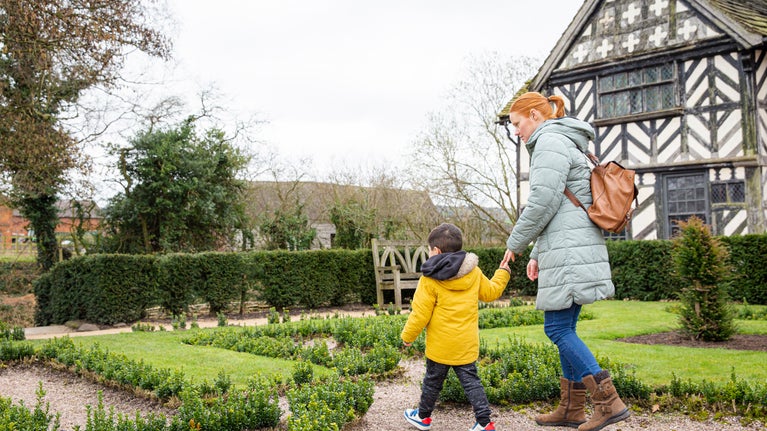
Discover Cheshire's most iconic black and white house. While modern life rushes by on the busy road outside, Little Moreton Hall, encircled by a moat, survives as a Tudor fantasy, transporting you back to another time. Find out about the knot garden, the burn marks on the house and all the other things you can see and do here.
This timber-framed building, with a scenic moat curling around it, has defied logic for over 500 years. Why is it so wonky? Why was the drain for the garderobe put on the front of the house? Why were clothes stored near it?
Come and meet the Tudor gentlefolk at Little Moreton Hall, also known as the living history costumed guides, who’ll help you to uncover the stories here.
Take a look at the fireplace in the Long Gallery Chamber when you visit. It may seem unbelievable in this wonky building, but the fireplace is perfectly straight, as proved by a spirit level.
The surrounding floors and walls are so out of line that they create the false impression that the fireplace is leaning.
Keep a look out for burn marks on your visit around the house. You might also spot a couple of sets of concentric circles that former residents at Little Moreton Hall scored into the wood to trap evil spirits.
The carpenters who built the house also added their own special marks to help them with construction.
While faded, the wall paintings in the Little Parlour still astound people today. They tell the story of Susanna and the Elders, a moralising tale from Apocrypha which sometimes accompanies the Old and New Testaments in the Bible.
The wall painting can be dated to between 1563–98. Faded initials ‘IM’ for John Moreton appear below the frieze. He was head of the household during the period when this type of painting was popular (1575–1600).
After this time, the family fitted oak panelling over the wall paintings, where they stayed hidden for centuries until an electrician discovered them in 1976.
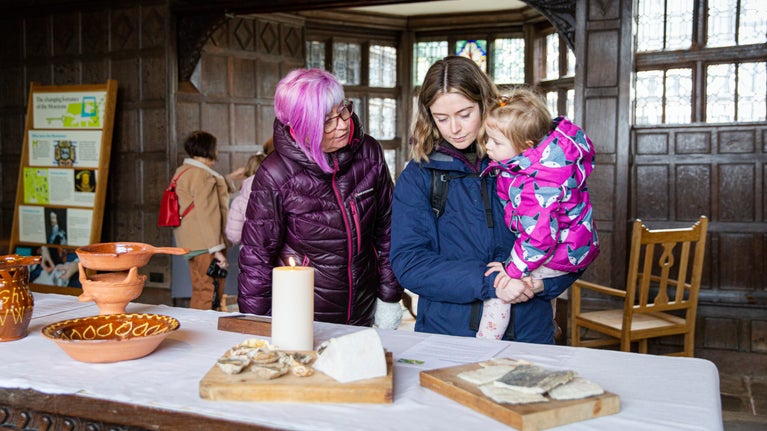
No visit to Little Moreton is complete without viewing the Long Gallery and you can climb up the spiral stairs to the top of the Hall.
Often likened to being onboard a wooden ship, the weight of the Long Gallery is responsible for much of the wonkiness you see in the Hall.
In the 1990s, we placed a steel cradle behind the panelling in the Long Gallery to redistribute the weight on to the load-bearing walls.
This stabilised the Hall and the restrictions of ‘only eight people and stay to the edge of the room’, were thankfully lifted.
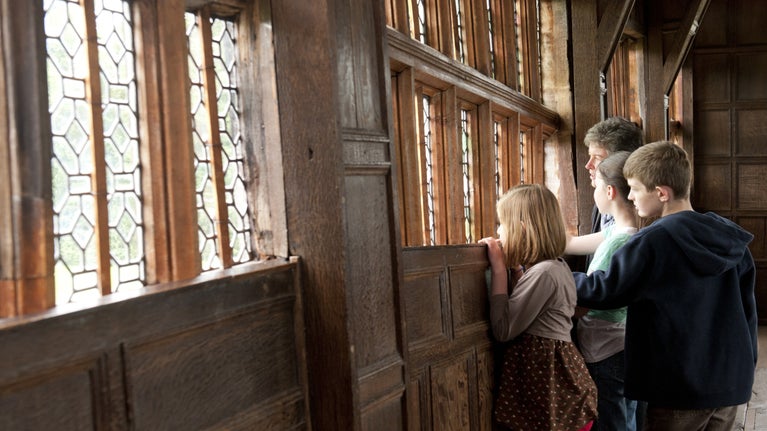
Though the garden is small there is plenty to see. A fine selection of native flowers as well as early introductions from the continent grow here.
You can wander around the garden and discover the plants which the Moreton’s would have likely grown.
The moat dates back to the Middle Ages and was likely a status symbol to prove how well the Moretons had done for themselves. Nowadays it is alive with wildlife, including tufted ducks and moorhens.
Many of the plants grown here would have had medicinal and culinary uses and, due to the garden’s small size, every one of the plants would have had some kind of use.
When wandering the gardens in spring, visitors can spot snowdrops, crocuses, cyclamen, daffodils and tulips. When summer arrives look out for eryngiums, Japanese anemones, Damask roses and Hypericum perforatum (St John's Wort). As autumn swoops over the Cheshire countryside, the trees surrounding the hall provide nature's firework display, with an orange and auburn infusion of colours to be admired.

Find out when Little Moreton Hall is open, how to get here, the things to see and do and more.
Whether you’re enjoying one of our self-led trails or the wibbly-wobbly floors, there's plenty of free activities to keep the whole family entertained at Little Moreton Hall.
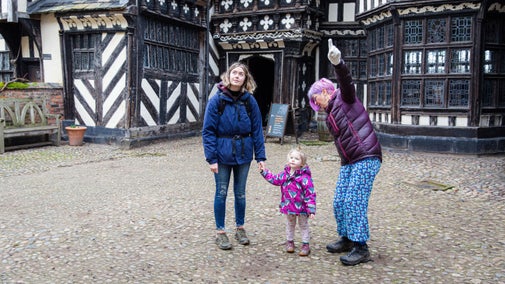
The cosy Tea Rooms at Little Moreton Hall offer delicious meals and seasonal treats all year round. The Tea Rooms will re-open Wednesday 11 February 2026 from 10.30am. The team can't wait to give you a warm welcome in the New Year.
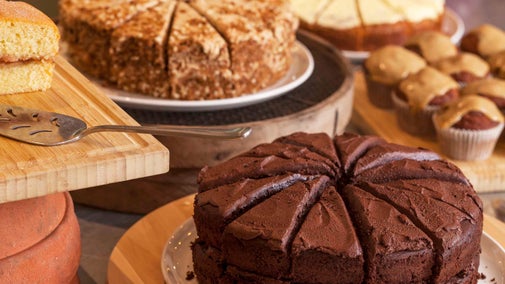
Little Moreton Hall welcomes assistance dogs only throughout the Hall, garden and Tea Rooms. Access to other dogs is very limited. All other dogs on leads are very welcome on the front lawn outside the moat, car park area and the pathway to the canal side walk.

Discover the ritual protection marks scattered about the house, how the Tudors used to sleep twice a night, and why Little Moreton Hall may be the wonkiest house you’ll ever see.
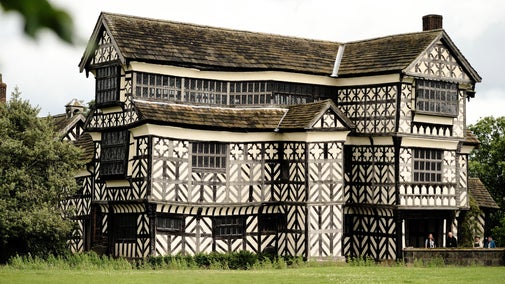
Historic houses and buildings are full of stories, art and collections. Learn more about their past and plan your next visit.
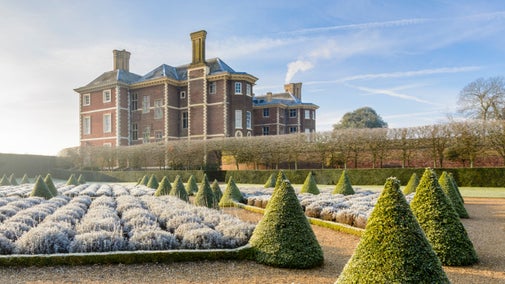
Discover a variety of houses and buildings to visit around Cheshire and Manchester, from grand mansions with opulent state rooms to a restored working mill.
